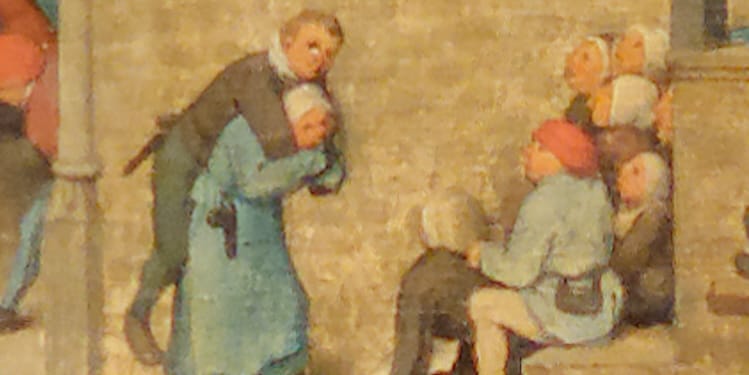Family is an invariant of all human society. Lévi-Strauss, whom Lacan knew well, had demonstrated this in a number of his articles, including in 1945 Structural Analysis in Linguistics and in Anthropology and also in his philosophical thesis published in 1949, The Elementary Structures of Kinship. Family is therefore a universal structure of speaking beings.This universality gives it the status of a real, the real of the symbolic. Katty Langelez-Stevens, in her presentation of PIPOL 12, can therefore state that “family is at the origin of the human institution” and “the starting point of all others [1]”. I’ll approach it through the dimension of the secret: the family secret.
The old lady is dying. Surrounding the bed in the room where she lies, in the home of her only son, the family is gathered, her daughter-in-law, her grandchildren. She turns her head towards her only son and begins to say.
At fifteen years old, this daughter of day laborers from northern France had been placed as a domestic servant with a wealthy landowning family. So many years later, she tells what she had never told anyone until now. She told how the man of the house had had sexual relations with her for some time. She finally admits to her son that this man was the “unknown” father he had had.The master had nevertheless paid for his son’s education, even though he never recognised him. But this son, who had honored himself during the ’40s war by becoming a schoolteacher, a “hussar of the republic”, as they were still honored of this title in those days, had left the environment of his birth as quickly as possible. Married young to a girl from the South, also a schoolteacher, they had started a family relocating quickly from the North to the South, moving away, quietly but firmly, from the circumstances and environment of his birth.
They had both taught in the same schools, her teaching for the younger ones, him leading the older ones to their school leaving certificate, loved and respected until their deaths by populations they had helped emancipate. Their mutual bond of love and respect was going to last until death separated them a few years apart. He was reserved, devoted to his family and passionate about his work of passing on knowledge. She was cheerful, laughing and sociable and her family had become his family.
Needless to say that the confession of this secret surprised neither his son nor his wife.
There is no family without a secret, whatever the origin and the nature of the secret. Whether the secret of ones’ birth is veiled to the subject in and by its inscription in the symbolic, of which the civil status is today one of the modalities, or whether secrecy is a matter of the subjective, that is to say of a structural clandestinity which we call the unconscious, it produces a value of added jouissance in every speaking being. Family is therefore the added value of secrecy.
What are family secrets? They are open secrets because they are only secrets thanks to the “I don’t want to know anything about it” principle, which is one of the possible names for the unconscious and obey to its law, which is the universal principle governing speaking beings.
But, you may ask, if secrecy has always existed, what is new about the current discontent in the family?
Advances in scientific knowledge have meant that what was once purely of the symbolic register has now reached the register of the real and is today traceable. The novelty also lies in the diversity of family models, single-parent families, blended families, homosexual families…it lies in the possibility of in vitro fertilization, surrogate motherhood, oocyte donation…While all these variants produce discontent, they cannot cancel out the dimension of secrecy to oneself, the very definition of the unconscious.
[1] Langelez-Stevens,K.,“Family Malaise”,20th October 2024, available online.
Translation: Tracy Hoijer-Favre
Proofreading: Susan McFeely







